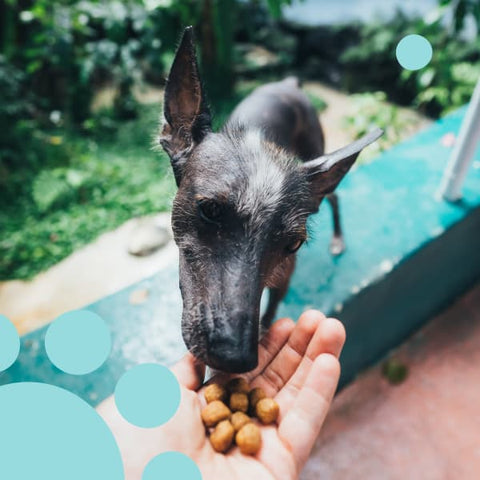Is royal canin grain free? Is one of the most frequent questions for pet owners.
They are always searching for the best food for their furry friends. With so many brands and options on the market, it can be overwhelming to choose the right food for our pets. One brand that has been popular for decades is Royal Canin.
However, recently, pet owners have been discussing whether Royal Canin is grain free or not. In this blog post, we will explore the truth behind Royal Canin's ingredients.
Is royal canin grain free?
Yes, royal canin has a grain free product and grain inclusive product options for their pet food products. However, it is important to note that the term "grain-free" can be a bit misleading, as grains are not necessarily harmful or unhealthy for pets. In fact, grains can provide important nutrients and fibre for dogs and cats.
That being said, if you are specifically looking for a grain-free option for your pet, Royal Canin does offer several grain-free formulas for both dogs and cats.
Why Does Royal Canin Use Grains in Their Pet Foods?
Grains are a common ingredient in pet food, and for good reason. Royal canin grain free provides a source of carbohydrates that can help give pets the energy they need to stay active and healthy. Grains can also provide essential nutrients such as fiber, vitamins, and minerals that are necessary for a pet's overall health.
Is Royal Canin hydrolyzed food grain free?

No, Royal Canin hydrolyzed food is grain-inclusive. Beside your concern about whether is royal canin grain free or not, you need to know that Royal Canin offers hydrolyzed protein diets for both dogs and cats, which are designed for pets with food sensitivities or allergies.
These diets use hydrolyzed proteins, which are broken down into smaller components that are less likely to trigger an immune response in pets with food sensitivities.
Is royal canin grain free dogs?
Yes, Royal Canin is grain free but the adult canned dog food is not.
Is royal canin grain free really better for dogs?
If a dog has a grain allergy, definitely you need to provide him a grain-free diet. Therefore, grain free is better for dogs with digestive issues.
Is royal canin kitten grain free?
Royal Canin offers several kitten formulas, and the grain content can vary depending on the specific formula. Some Royal Canin kitten formulas do contain grains, while others are grain-free.
For example, the Royal Canin Feline Health Nutrition Kitten dry cat food contains rice, corn gluten meal, and wheat gluten, while the Royal Canin Veterinary Diet Feline Hydrolyzed Protein Adult HP dry cat food is grain-free and suitable for kittens with food sensitivities.
If you are looking for a specific Royal Canin kitten formula that is grain-free, it's best to check the ingredient list on the product packaging or consult with a veterinarian or pet nutritionist to find the right formula for your kitten's individual needs.
Is royal canin gluten free?
Royal Canin pet foods may contain gluten, depending on the specific formula. Gluten is a protein found in certain grains such as wheat, barley, and rye.
If you are looking for a gluten-free diet for your pet, Royal Canin does offer some options. For example, the Royal Canin Veterinary Diet Canine and Feline Selected Protein formulas are designed for pets with food sensitivities and are made with limited ingredients, including a single protein source and a single carbohydrate source.
Is royal canin wheat free?
Royal Canin pet foods may contain wheat, depending on the specific formula. Wheat is a common ingredient in many pet foods as it is a source of carbohydrates and protein.
If you are looking for a wheat-free diet for your pet, Royal Canin does offer some options. For example, the Royal Canin Veterinary Diet Canine and Feline Selected Protein formulas are designed for pets with food sensitivities and are made with limited ingredients, including a single protein source and a single carbohydrate source.
10 Key Takeaways About Is Royal Canin grain free:
- Royal Canin is not grain free, but they do offer some grain free options for pets with special dietary needs.
- Grains are a common ingredient in pet food and can provide essential nutrients and energy for pets.
- A balanced diet is crucial for a pet's overall health and well being.
- A balanced diet consists of a combination of protein, fats, and carbohydrates as well as essential vitamins and minerals.
- It's important to choose a pet food that meets your pet's specific dietary needs.
- Meat should be the first ingredient listed on the label.
- Avoid pet foods that contain fillers such as corn, wheat, and soy.
- Consider your pet's age, size, and any special dietary requirements when choosing a pet food.
- High quality ingredients are key to a healthy pet diet.
- Always consult with your veterinarian before making any changes to your pet's diet.
Conclusion:
Choosing the right pet food can be overwhelming, but it's essential for our pets' health. Remember to look for high quality ingredients, a balanced diet, and choose a food that meets your pet's specific needs.
FAQs:
-
What is special about Royal Canin?
One of the things that sets Royal Canin apart is their focus on breed-specific nutrition. They believe that different breeds of dogs have different nutritional needs, and they have developed specific formulas to meet those needs. For example, they have formulas for small breed dogs, large breed dogs, and even specific breeds like Labrador Retrievers and Dachshunds.
-
Do vets recommend grain free?
It depends on the pet's health whether to use grain food or grain free. For pets with sensitive stomach or allergies, vet will recommend grain free.
-
Why do vets say no grain free dog food?
Your veterinarian may advise against feeding your dog a grain-free diet because it may not provide all the essential nutrients that dogs need. Grains can be a good source of nutrients and can support heart health in dogs. Therefore, removing grains from your dog's diet may lead to a deficiency in these important nutrients, which in turn can potentially result in poor heart health.

